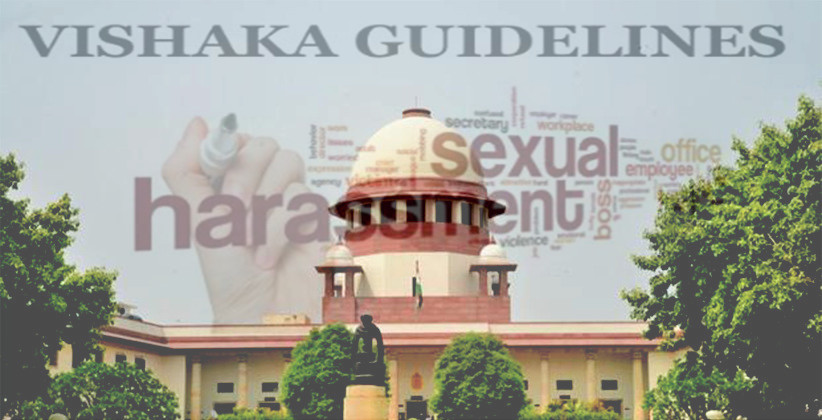The Supreme Court on July 22, 2019, dismissed a PIL seeking directions to implement Vishakha guidelines on sexual harassment in religious institutions.
The Bench headed by Chief Justice of India Ranjan Gogoi said judicial orders can't be passed on this plea as Vishakha guidelines cannot be extended to religious places.
"Why don't you file a criminal complaint? How can Vishakha guidelines be extended to religious places?" asked the CJI, junking the PIL.
The petition filed by advocate Maneesh Pathak sought that the Vishakha guidelines against sexual harassment at workplace may also be made applicable to ashrams, madrasas and Catholic institutions.
It said that religious institutions also have women employed there other than those working on a voluntary basis.
"If the Vishakha Guidelines are extended to these religious institutions, it would assist a lot in reducing sexually related crimes against women at religious places by gurus or leaders of that particular institution, it was averred.
The apex court had on August 13, 1997, in the Vishakha case, laid down as many as 12 guidelines to be followed by employers to prevent or deter acts of sexual harassments against women at the workplace.
The 2018 petition said religious places constitute part of workplace as many women are employed there, other than those working on a voluntarily basis.
The petition sought collection of data of such religious institutions where women practice and profess religion, for taking effective steps based on the guidelines to assist the victims of sexual assaults. It also sought the Centre to direct the authorities concerned of the particular area, where such religious institutions are situated, to do the background verification of religious leaders, especially "new upcoming babas" or "heads of those madarsas" and churches.
Further, it also sought directions to the Centre to provide adequate measures for women safety at religious places by conducting periodic checks from state women panels.
Emphasizing on the need for framing of policies based on the Vishakha guidelines so that women may feel safe at religious places, the petition mentioned incidents of sexual exploitation in religious institutions such as the issue of the Kerala priest, and other gurus like Daati Maharaj, Baba Ram Rahim and Aasaram Bapu.







